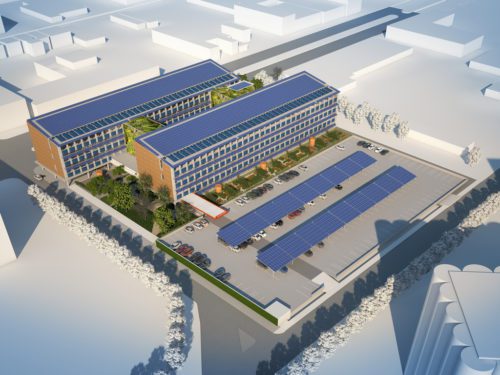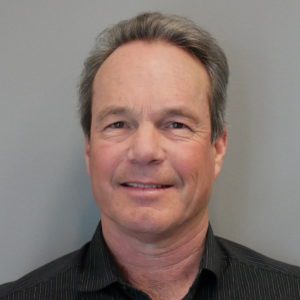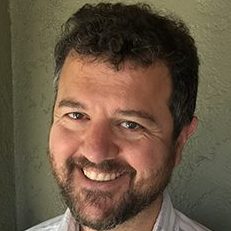
Webinar: Decarbonization and electrification with model structures – Wednesday, May 15, 2019
This webinar was the second in a series on the Clean Coalition's North Bay Community Resilience Initiative.
The Clean Coalition webinar “Decarbonization and electrification with model structures” took place on May 15, 2019.
This webinar was the second in a series on the Clean Coalition’s North Bay Community Resilience Initiative (NBCRI), a groundbreaking initiative to provide local governments, developers, and residents in disaster-affected areas with the information and tools they need to rebuild their communities with resilience.
Click here to watch this video on YouTube.
Presentation slides areavailable in PDFformat.
The Clean Coalition’s John Sarter; Panama Bartholomy, Director of the Building Decarbonization Coalition;and Sean Armstrong, Managing Principal of Redwood Energy, presented. The webinar focused on tools and strategies for decarbonizing the built environment while creating Community Microgrid–ready homes and buildings for the clean energy transition that is taking place.
Attendees learned about strategies to decarbonize and electrify both existing buildings and new buildings, as well as transportation and other infrastructure within communities and cities, in order to:
- Reduce greenhouse gas (GHG) emissions and achieve Zero Net Energy (ZNE)
- Create resilience within communities
- Develop a safer, more resilient, local renewable energy system
- Create security and reliability within the energy sector
This webinar laid out and explained some of the best systems, strategies, and technologies to achieve these goals.
The North Bay Community Resilience Initiative focuses on helping the victims of the North Bay fires of 2017 and 2018 rebuild with resilience, in the wake of some of the most destructive and deadly fire seasons in California’s history. The Initiative also promotes community resilience through action at the city, county, and local government level.
The Initiative’s goals:
- Publicize and track energy efficiency and electrification incentives and policies, to steer rebuilding and future development efforts toward Community Microgrid–ready structures.
- Identify model structures withCommunity Microgrid–ready designs and specifications for new residential and commercial construction, as well as retrofits.
- Identify and stage critical-facility microgrid pilots capable of expanding into larger Community Microgrid systems.
Webinar series
This webinar was the second in a series based on findings from the North Bay Community Resilience Initiative. For an overview of the NBCRI, see our webinar “Introduction to the North Bay Community Resilience Initiative.”
Presenters
 John Sarter, Program Manager at the Clean Coalition, is a sustainable designer/developer, innovator in systems integration, and expert in real estate, renewable energy, and transportation. John has owned and operated his firms, Sarter Construction & Design, Off The Grid Design, and Sol Lux Alpha, since 1986. A recognized leader in the solar+storage space since 2008, John founded the Microgrid Development Group, SF Bay Area in 2014 to unite a consortium of technology, energy, engineering, and other professionals committed to creating a resilient and sustainable, 100% renewable energy future. John’s lifelong and ongoing studies include sustainable design and architecture, and technology entrepreneurship, at the College of Marin, Santa Rosa Junior College, Sonoma State University, and Stanford University.
John Sarter, Program Manager at the Clean Coalition, is a sustainable designer/developer, innovator in systems integration, and expert in real estate, renewable energy, and transportation. John has owned and operated his firms, Sarter Construction & Design, Off The Grid Design, and Sol Lux Alpha, since 1986. A recognized leader in the solar+storage space since 2008, John founded the Microgrid Development Group, SF Bay Area in 2014 to unite a consortium of technology, energy, engineering, and other professionals committed to creating a resilient and sustainable, 100% renewable energy future. John’s lifelong and ongoing studies include sustainable design and architecture, and technology entrepreneurship, at the College of Marin, Santa Rosa Junior College, Sonoma State University, and Stanford University.
 Panama Bartholomy is Director of the Building Decarbonization Coalition. Panama has managed and facilitated the creation and implementation of some of the largest climate and energy programs in the United States. His work focuses on finding policy and program solutions for communities facing energy efficiency, renewable energy, land use and climate change challenges. Panama combines frontline experience with state and local government policy and has dealt extensively in the regulatory and utility arenas. Previously, Panama was the Advisor on Energy and Natural Resources to California Assembly Speaker John A. Perez where he oversaw the State of California’s energy and environmental legislation and budget. He earlier served as Deputy Director of the California Energy Commission’s Efficiency and Renewables Division and advisor for Chairmen Douglas and Pfannenstiel, worked for the California Conservation Corps on vocational environmental education, and ran the Sustainable Schools program for the Division of the State Architect. Panama served on the City of Sacramento Planning Commission and the County of Sacramento Environmental Commission, and is a former board member on the U.S. Green Building Council (USGBC) and past president of the Northern California Chapter of the USGBC.
Panama Bartholomy is Director of the Building Decarbonization Coalition. Panama has managed and facilitated the creation and implementation of some of the largest climate and energy programs in the United States. His work focuses on finding policy and program solutions for communities facing energy efficiency, renewable energy, land use and climate change challenges. Panama combines frontline experience with state and local government policy and has dealt extensively in the regulatory and utility arenas. Previously, Panama was the Advisor on Energy and Natural Resources to California Assembly Speaker John A. Perez where he oversaw the State of California’s energy and environmental legislation and budget. He earlier served as Deputy Director of the California Energy Commission’s Efficiency and Renewables Division and advisor for Chairmen Douglas and Pfannenstiel, worked for the California Conservation Corps on vocational environmental education, and ran the Sustainable Schools program for the Division of the State Architect. Panama served on the City of Sacramento Planning Commission and the County of Sacramento Environmental Commission, and is a former board member on the U.S. Green Building Council (USGBC) and past president of the Northern California Chapter of the USGBC.
 Sean Armstrong is Managing Principal of Redwood Energy. Sean has co-designed the largest portfolio of all-electric, 100% solar powered residences in the nation, focusing on the production of low-income solar powered housing and converting the lessons learned from the large affordable housing market to the smaller field of ZNE market rate housing. Sean’s career in “Zero Net Energy” affordable housing began 2005 when, as Project Manager with a large developer, he led the design of the nation’s first 50% solar powered apartment complex, and the first to give solar electricity benefits directly to tenants. In addition to managing the growing staff at Redwood Energy, Sean runs the largest study of monitored end loads (e.g. DHW tanks, Lighting, Plug Loads, Cooking) in the U.S., with 270 ZNE residences under second-by-second monitoring of all uses to inform regulators with exacting detail of how energy is used by appliance, occupancy, age and income. Sean is under contract to help develop California’s 2017 Code and the 2020 ZNE Energy Code, and is writing a new website to document the technical practice of fuel switching retrofits of all building types–trailer homes, apartments, restaurants, hotels, etc.–so all can benefit from lower-cost solar energy. In his spare time has written a local guide to edible landscaping on the Humboldt Bay, imported from New Zealand the founding stock of a rare breed of Kunekune grass-fed pigs, sponsors a household of community activists (transgender activists, organic farmers and environmentalists) and has helped design and lead the development of six Tiny Houses.
Sean Armstrong is Managing Principal of Redwood Energy. Sean has co-designed the largest portfolio of all-electric, 100% solar powered residences in the nation, focusing on the production of low-income solar powered housing and converting the lessons learned from the large affordable housing market to the smaller field of ZNE market rate housing. Sean’s career in “Zero Net Energy” affordable housing began 2005 when, as Project Manager with a large developer, he led the design of the nation’s first 50% solar powered apartment complex, and the first to give solar electricity benefits directly to tenants. In addition to managing the growing staff at Redwood Energy, Sean runs the largest study of monitored end loads (e.g. DHW tanks, Lighting, Plug Loads, Cooking) in the U.S., with 270 ZNE residences under second-by-second monitoring of all uses to inform regulators with exacting detail of how energy is used by appliance, occupancy, age and income. Sean is under contract to help develop California’s 2017 Code and the 2020 ZNE Energy Code, and is writing a new website to document the technical practice of fuel switching retrofits of all building types–trailer homes, apartments, restaurants, hotels, etc.–so all can benefit from lower-cost solar energy. In his spare time has written a local guide to edible landscaping on the Humboldt Bay, imported from New Zealand the founding stock of a rare breed of Kunekune grass-fed pigs, sponsors a household of community activists (transgender activists, organic farmers and environmentalists) and has helped design and lead the development of six Tiny Houses.
